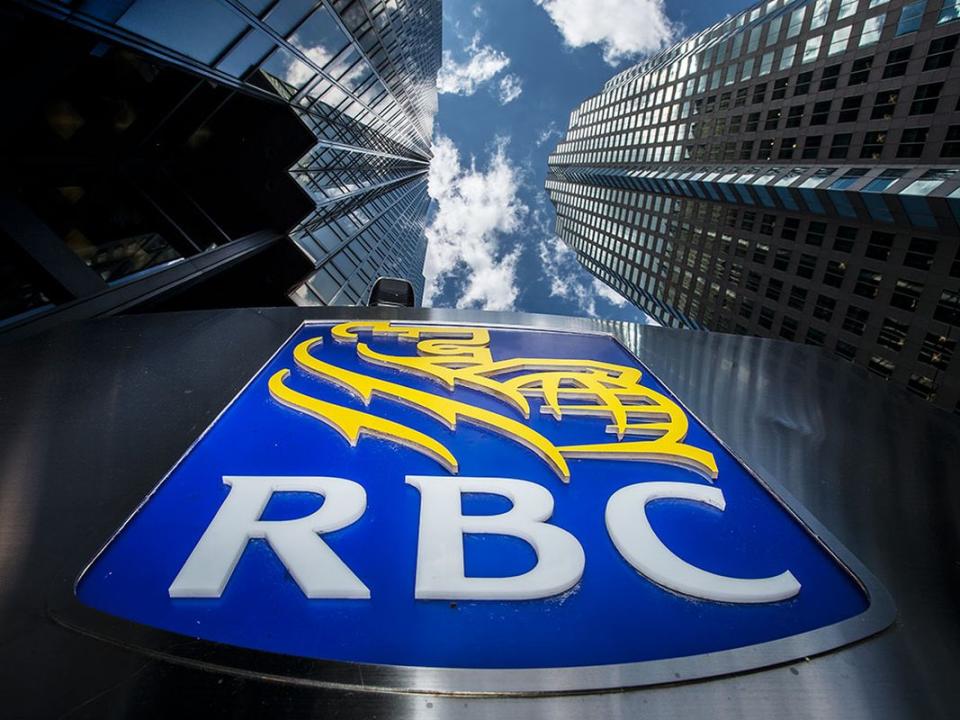RBC poised to outperform rivals thanks to HSBC deal, say analysts

Exposure to more fee-based revenue from the acquisition of HSBC Holdings PLC’s Canadian franchise is likely to boost Royal Bank of Canada’s performance relative to other domestic banks when they begin releasing second-quarter earnings next week, according to analysts at Jefferies Securities Inc.
“We believe that (Royal Bank)’s acquisition of HSBC provides significant growth and efficiency opportunities and, with no material disruptions emanating from the integration, there are few impediments to outsized growth against its peers,” bank analyst John Aiken said in a note to clients Monday.
“Further, HSBC allows the largest platform in Canada to get larger, allowing incremental market share growth from RY’s ability to increase efficiencies and win incremental customers and share of wallet.”
Aiken’s report lays out two buckets for outperformance in an otherwise solid but “unspectacular” quarter: weighting towards fee-based revenue and ability to generate positive operating leverage despite muted top-line growth. RBC is the only Canadian bank in both categories. National Bank of Canada is also weighted towards fee-based revenue, while Bank of Montreal and Canadian Imperial Bank of Commerce both fall into the other bucket.
Aiken said synergies that Royal will derive from the HSBC acquisition on top of existing exposure to fee-based revenues in wealth management and capital markets will help the bank outpace its peers in organic growth. In the same report, he upgraded Royal Bank to a buy with a target price of $157, up from $136.
“A customer in Canada is exceptionally profitable for the banks,” Aiken said, adding that Royal Bank now has the opportunity to “cross-sell” the 700,000 retail customers and and 12,000 commercial clients that came from the HSBC purchase.
As Canadian banks roll out results for the second-quarter, which is a couple of days shorter than the prior period, Aiken anticipates top-line growth will ebb, falling to low single digits, weighed down by capital markets revenues moderating from the relatively elevated first quarter.
“That said, aided by the shortened Q2, we anticipate sequential non-interest expenses will be held largely in-check,” he said.
The credit picture, meanwhile, is expected to continue to weaken on the back of uneven domestic employment growth.
“While we are not forecasting material credit headwinds … it will be incrementally more difficult for the banks to earn through higher provisions” than in the first quarter, Aiken said.
Lending volumes, meanwhile, are expected to be relatively modest, with the same economic trends having an impact on loan growth and potential for banks to tighten up credit adjudication. Aiken said he has a positive outlook for banks that have larger loan books outside Canada, notably Bank of Montreal and TD.
Bank margins are expected to be fairly stable, with some potential for expansion in the domestic markets as residential mortgages are repriced at higher rates. CIBC and RBC have the largest relative proportion of these loans, and “could stand above their respective peers,” Aiken said.
On the capital markets side of the business, Jefferies analysts are expecting fairly positive performance in underwriting in the second quarter. However, strong sequential growth may not materialize since relatively high capital markets revenues were generated in the first quarter, they said.
RBC and National Bank are expected to lead in underwriting, while TD and National could have strong quarters in mergers and acquisitions.
Aiken said the large Canadian banks are not facing any capital issues, though dividend increases, where announced, are expected to be “much more muted” than recent experience. He predicts that National Bank and Bank of Montreal will announce the largest dividend increases in the second quarter.
The analyst said a delay in regulatory approval of the HSBC acquisition helped Royal Bank’s capital position because the bank continued to stockpile not only internally generated capital but also the more than 18 months of accrued earnings generated by HSBC after the acquisition was announced.
“We anticipate that RY’s regulatory capital ratio will be well above 12.5 per cent in the second quarter,” Aiken said.
The Jefferies analysts estimate that more than half of earnings per share growth at RBC will be attributable to organic growth, while the full impact of the HSBC Canada acquisition will contribute more than a third, according to a forecast that extends from 2023 through 2026. Improved operations from City National in the United States, meanwhile, represent just over 10 per cent of earnings growth in the analysts’ forecast. Tailwinds from wealth management and capital markets account for the remainder.
Toronto-Dominion Bank kicks off second-quarter earnings season on May 23.
• Email: bshecter@postmedia.com
Bookmark our website and support our journalism: Don’t miss the business news you need to know — add financialpost.com to your bookmarks and sign up for our newsletters here.

 Yahoo Finance
Yahoo Finance 